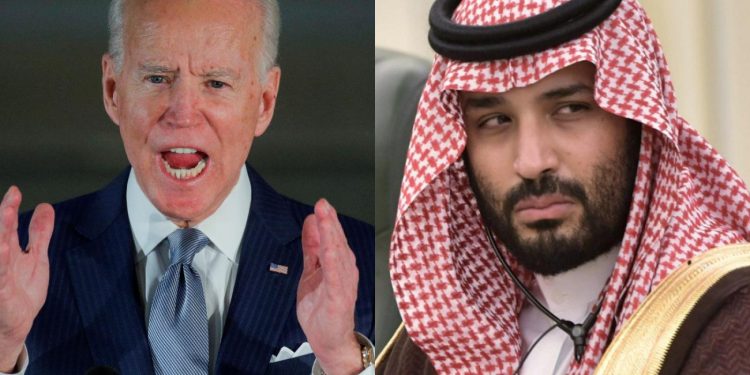In 1979, America’s key ally in the Middle East, Mohammad Reza Shah Pahlavi, the Shah of Iran, was ousted by insurgents and revolutionaries. Forty-two years later, the United States is risking and repeating the same mistake with its other ally in the Middle East, unless it is able to persuade the Saudi royal family to change to a constitutional monarchy.
The reason for the US avoiding pressure on Saudi Arabia in the case of democracy and human rights is the position of this monarchy in the Persian Gulf as an important partner of the United States and other Western countries. Riyadh shares important information on counterterrorism. It also plays a key role in stabilizing the global energy market and is a barrier to Iran’s further development in the Middle East. In addition, it is a lucrative market for financial investment and arms sales.
Many US officials are worried if the Kingdom of Saudi Arabia becomes unstable; Many valuable intelligence collaborations will be lost, or even Saudi leaders seek a partnership with China and Russia that has common-minded leaders with Saudi Arabia who do not object country’s human rights. Biden’s cautious approach to Muhammad bin Salman is also due to the misconception that the United States has long had a dilemma: choosing between a repressive but stable monarchy or an unpredictable country, possibly dominated by radical Islamists.
But there has always been a sensible way in between. The Biden government must force the royal family to begin long-term reforms with a legislature to quietly replace the council of advisers advising the king. Undoubtedly, some members of the royal family will be reluctant to accept the limitation of their power, even voluntarily. But the Saudi monarchy today is far more vulnerable than the majority of members of the royal family are willing to accept. Biden must push for reforms in this structure. Because this is the only way to save the royal government after the scandal of the Khashoggi assassination.
Joe Biden could push for a political reform council consisting of Saudi and American members, civil society members, activists, diplomats, and lawyers. The main agenda of the Reform Council should be to prepare Saudi Arabia for general elections with the aim of replacing the Council of Assigned Advisers with the People’s Assembly, as well as to remove restrictions on non-governmental and political organizations and to protect freedom of expression.
The United States is the only force capable of forcing the Saudi royal family to accept reform. In the past, the United States has supported Saudi Arabia without expecting political reform, largely because of the dualistic mindset of choosing between stability or democracy. But this is a false mentality, just as Saudi Arabia is not as stable as it used to be. Several years of falling oil prices, a year of the Covid-19 epidemic, rising unemployment, the disappearance of foreign direct investment have weakened Saudi Arabia’s economic position and ignited popular discontent. Political crackdowns, arrests, and imprisonment of dissidents have also put double pressure on the monarchy.
King Salman, Muhammad ibn Salman, and other important members of the royal family will probably not accept the limitation of their power in order to maintain their position and survival. The loudest voices calling for reform in Saudi Arabia are moderate, but that could change and society seeks to overthrow the monarchy. Political reform is necessary and vital. Khashoggi’s epic will not be easily forgotten, eventually, the will of the people will prevail over the power of the monarchy and the policies of the position of his most important ally.
In 1979, America’s most important ally in the Middle East, Mohammad Reza Shah Pahlavi, the Shah of Iran, was ousted by insurgents and revolutionaries. Forty-two years later, the United States is risking and repeating the same mistake with its other ally in the Middle East, unless it is able to persuade the Saudi royal family to change to a constitutional monarchy.









